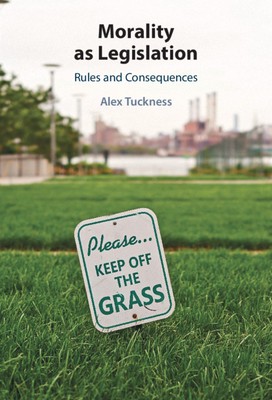
- We will send in 10–14 business days.
- Author: Alex Tuckness
- Publisher: Cambridge University Press
- ISBN-10: 1316511405
- ISBN-13: 9781316511404
- Format: 15.2 x 22.9 x 1.4 cm, hardcover
- Language: English
- SAVE -10% with code: EXTRA
Reviews
Description
'What would happen if everyone acted that way?' This question is often used in everyday moral assessments, but it has a paradoxical quality: it draws not only on Kantian ideas of a universal moral law but also on consequentialist claims that what is right depends on the outcome. In this book, Alex Tuckness examines how the question came to be seen as paradoxical, tracing its history from the theistic approaches of the seventeenth century to the secular accounts of the present. Tuckness shows that the earlier interpretations were hybrid theories that included both consequentialist and non-consequentialist elements, and argues that contemporary uses of this approach will likewise need to combine consequentialist and non-consequentialist commitments.
EXTRA 10 % discount with code: EXTRA
The promotion ends in 17d.22:26:22
The discount code is valid when purchasing from 10 €. Discounts do not stack.
- Author: Alex Tuckness
- Publisher: Cambridge University Press
- ISBN-10: 1316511405
- ISBN-13: 9781316511404
- Format: 15.2 x 22.9 x 1.4 cm, hardcover
- Language: English English
'What would happen if everyone acted that way?' This question is often used in everyday moral assessments, but it has a paradoxical quality: it draws not only on Kantian ideas of a universal moral law but also on consequentialist claims that what is right depends on the outcome. In this book, Alex Tuckness examines how the question came to be seen as paradoxical, tracing its history from the theistic approaches of the seventeenth century to the secular accounts of the present. Tuckness shows that the earlier interpretations were hybrid theories that included both consequentialist and non-consequentialist elements, and argues that contemporary uses of this approach will likewise need to combine consequentialist and non-consequentialist commitments.


Reviews